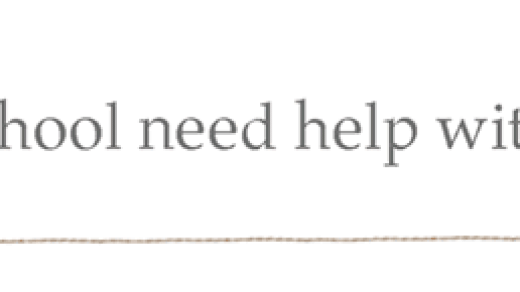Mobile Classroom

By Christine Toner
A useful educational tool or an unnecessary distraction?
Educate takes a look at the use of mobile phones in the classroom
Last month the French government implemented a new rule across its education system. Following through on a promise made by President Macron during his election campaign, it was billed as a ‘public health message’ and a way of ‘protecting pupils’. So what are we talking about? An increase in health education classes? A plan to cut out junk food? No – the French education minister Jean-Michel Blanquer has imposed a blanket ban on mobile phones in schools. While pupils will be allowed to bring the devices to school they will not be permitted to take them out of their bags – even during break time.
It’s a topic that has caused much discussion in politics. Last summer the Scottish Conservative party called for mobile phones to be banned from all primary schools and severely restricted in secondaries.
The party claimed such a move could improve test scores and reduce educational inequality.
It’s certainly not the first time the correlation between a pupil’s performance and behaviour in school and their use of a mobile phone has been made.
Back in 2015 it was announced that a government investigation into how to train teachers to tackle poor pupil behaviour was to be expanded to cover wider issues such as the use of mobile phones and other devices in schools.
And it seems the view that the use of mobiles could be detrimental to a pupil’s learning is one shared in Merseyside schools.
“From September 2017, Rainford High banned mobile phones from being on in the building between 8.45 and 3.15”, says Ian Young, principal of Rainford High. “Teachers can still give permission for students to use smart phones when appropriate for completing learning activities in lessons.
Ian says the school changed its policy due to the misuse of mobile phones and social media around the school.
“The ban has now reduced the number of issues we deal with as a school that are driven by social media,” he says. “It is frustrating that all the technology in a smartphone is not used more responsibly by the young people so that it can support learning.
“We do find that certain apps are useful for revision and supporting some learning but on the whole the technology does not impact effectively on student learning.”
Ian says anyone who has a smartphone knows they are addictive to use.
“There is a lot of research that smartphones are affecting young people in a negative fashion by limiting their face-to-face communication skills and damaging self-esteem when linked to the negative impact of social media when it is used in a thoughtless manner.
“Like everything there are also many positives to how technology can affect young people and some apps are helpful, supportive and benefit young people’s development. However, as a school we feel that banning smartphones has been a positive step and has reduced incidents of social media abuse and distraction around the school.”
Gateacre School takes a similar approach.
“As part of the Gateacre Way and Ready To Learn line at the front of the building we are quite strict regarding mobile phone use, simply they should not be seen or heard throughout the day,” says headteacher Jason Roberts. “In all the schools I have worked in (five in 15 years) each school has had similar if not the same policy.”
Jason says Smartphones do have some use but “this has to be closely monitored.”
“Tools such as GCSEPod are very useful to help Year 11 pupils revise and learn away from the classroom,” he says. “Some subject areas such as media or art and design might bring in specific aspects of mobile phones as part of an investigation or design brief.”
“However, reports into the use of phones and their impact on mental wellbeing,” says Jason, “cannot be ignored.”
“Looking outwards at research available and reports in other media outlets unfettered social media use can according to reports I have read be quite detrimental,” he says. “Children can become obsessed with what is happening in the online world and not have much time for what really matters at this age which is enjoying their childhood and getting a good education.
“Ultimately, good parenting helps safeguard children from social media which is why at Gateacre we have regular safeguarding updates via our Newsflash and website to keep parents and carers aware of what is going in the social media world.”
It’s easy to see why there is so much concern around the use of Smartphones. A 2016 survey by Opinium found that on average children now own their first mobile phone by the age of seven.
The survey of 1,500 parents by Opinium found that on average, UK children had an iPad by age eight, and a smartphone by age ten.
It also found most children can use a television aged just four years old – before they can tie their own shoelaces, swim without help or ride a bicycle without stabilizers – and can browse the internet as early as age five.
Of course one of the biggest concerns linked to smartphones and the internet is the social media phenomenon. From Facebook to Twitter and Instagram to Snapchat, social media platforms present a myriad of issues.
Meanwhile the Office for National Statistics has found a “clear association” between longer time spent on social media and mental health problems.
But one professor has spoke out against a ban on mobile phones in schools. According to Professor Paul Howard-Jones, banning phones and other technology from schools is moving in the ‘wrong direction’. The academic says teachers and parents should instead look at how pupils are interacting with the technology.
Stephen Brierley, principal of St Margaret’s Academy agrees educatiing students on the best ways to utilise and interact with technology is key.
“Whilst it’s an invaluable aid to learning, talk to any secondary school pastoral leader nowadays and they’ll tell you there’s a significant downside too,” he says. “And therein lies the heart of the problem. Every new technology humanity develops is operated, ultimately, by a human being. And that human being has a choice to use it for good or for ill. Some will use new technology for the benefit of themselves or their peers. But history teaches us that others will use it for much less noble purposes.”
Stephen says when he considers he had to walk 20 minutes to the local library to check something out in a reference book, he can only look on“with envy” at pupils’ technological resources today.
“The amount of information young people now have access to is utterly unparalleled,” he says. “The range of content they can access – to help with revision, to give them extra practice with something they’ve found hard – is jaw-dropping. But it comes at a price. Anyone can put ‘stuff’ out there – and so we see the rise of ‘fake news’, of echo chambers where prejudices are reinforced ever more deeply, of misinformation becoming as prevalent – and as valued – as information.”
Stephen says social media, which enables young people to stay in touch 24/7, also comes at a price.
“Sleep deprivation is becoming more and more common,” he says. “Some young people report that cyber-bullying (even the term was unheard of when I first started in teaching) is widespread and pernicious. And both of these are taking a stronger and stronger toll on our young people’s mental health.
“As ever, education should be the answer. If we can educate our young people about the correct use of mobile technology – about how it can be our servant, not our master – then surely enough young people will make the right choices. That means that as leaders, we need to stay ahead of the curve, as much as we can. Our policies need to be revisited and revised on a regular basis. We need to keep abreast of the latest social media platforms, and what risks they pose to those in our care. We need to promote the positive use of mobile technology, to show how it can make our world a better place. All of that will help.”
“More importantly,” says Stephen, “we need to equip our young people with the character, the attitudes and the values that will enable them to make the right choices whatever new technology comes along.
“If we succeed in that, our world will become a better place,” he adds. “And ultimately, that’s why I came into education.”



